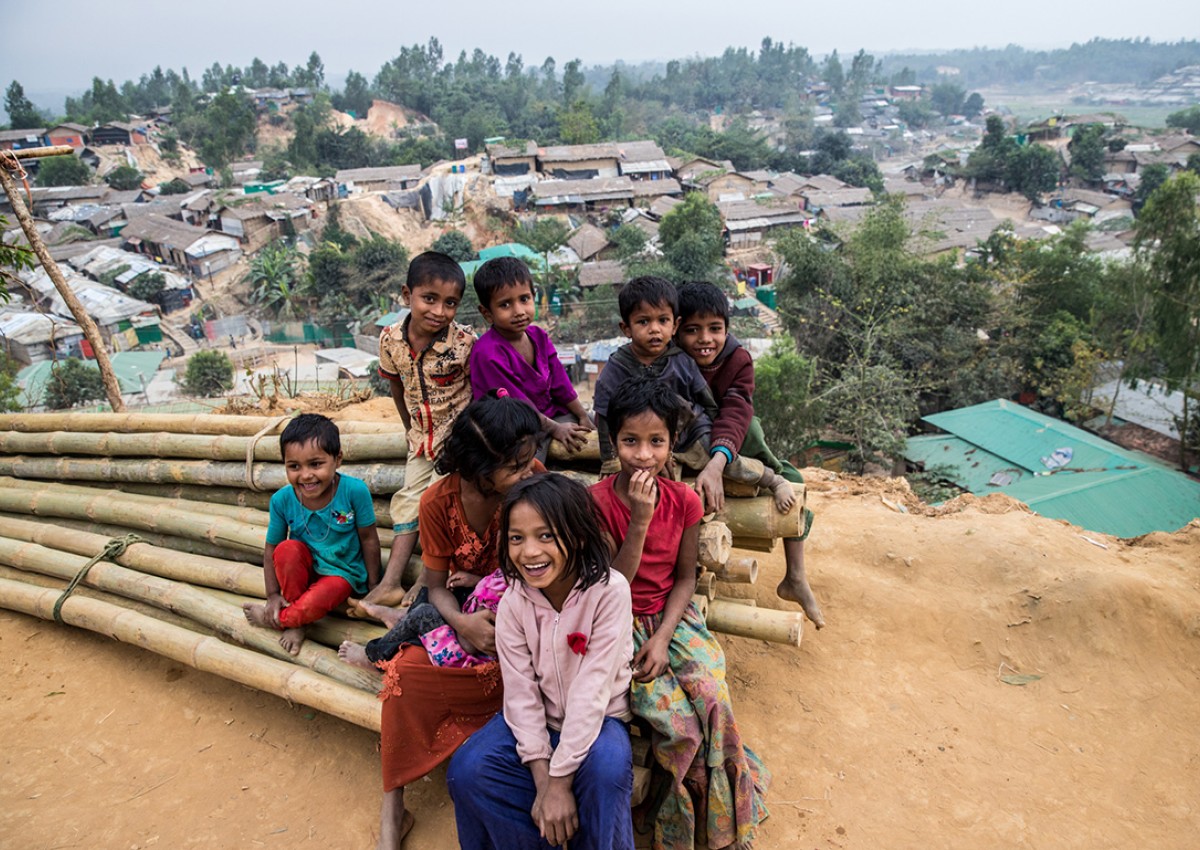





ONE THOUSAND DAYS
Written by Ram Das, Deputy Country Director, Humanitarian Response, CARE Bangladesh
There are places on earth where human induced conflicts have persisted for decades. In other areas millions suffer due to pandemics, climate change and natural disasters. All these have resulted in the devastation and displacement of millions of lives. And in 2017, hundreds of thousands of Rohingyas fled Myanmar to settle in the Cox’s Bazar region of Bangladesh. Close to a million, the Rohingyas have been waiting for three years, for justice, to have their rights back, and to return home. They are living in the world’s most overcrowded camps amidst a complex humanitarian situation. If their given state wasn’t challenging enough, the COVID-19 pandemic has added another layer of complexity to their lives. At the height of the pandemic, they are now having to deal with the monsoon-cyclone season. As I write these lines, heavy downpour in Cox’s Bazar has inundated large areas in the camps.
While waiting for a positive turn in their lives, the Rohingyas have put up a brave and strong struggle for survival. Back in 2017, Delder Begum literally walked for seven days with her young daughter to reach Cox’s Bazar. After 65 days of treatment at a local hospital, they were provided shelter at Camp 14, which is “home” for them now. “When I fled Myanmar, I was only 25. But the last three years, have matured me beyond time and redefined the meaning of life altogether. I am still trying to come to terms with the loss of my husband and sons but I find solace in contributing to my community here,” says Delder Begum. She is one of the most active members of the Women Disaster Management Volunteers (DMU) of Camp 14, CARE Bangladesh’s site management project. She has received training in disaster management that includes Early Warning System, First Aid, and rescue efforts, among others.
Like Deldar, hundreds of thousands of Rohingyas settled around Ukhiya and Teknaf sub-districts. CARE has been actively engaged in emergency response from the very onset of the influx. For the past three years, CARE has provided support in terms of managing and coordinating supply of essential services in three camps, while supporting infrastructure development, setting up water supply systems, constructing toilets, installing hand washing points, ensuring cleanliness and hygiene in the camps, setting up health centers, supporting counselling and referral services for gender based violence cases etc. across eight camps. As of now, CARE has been able to reach about 200,000 people with these essential services.
Delder Begum recollects her initial inability to adjust in the camp, primarily due to communication and socio-cultural barriers. Today, she is responsible for raising awareness and building capacity of 65 families on cyclone preparedness, landslide risk management, fire incidents etc. “I feel so happy to see my daughter resume her education. I want her to complete her education and become a good leader,” she adds.
Over the past three years, CARE has been working with the Rohingya population to improve their living conditions. A couple of hundred Rohingya volunteers working with CARE programs have played a critical role. In addition to bringing about positive changes in others’ live, the volunteers themselves have undergone massive transformation.
Md. Atikul Islam from Palongkhali camp works as an Outreach Volunteer in Camp 16. Over the last three years, his perspectives, especially towards gender, have undergone dramatic changes. From having strong conservative beliefs regarding women’s rights, today he advocates for gender equality and women’s empowerment in the camp. He engages with men and boys to make them aware about women’s rights and against any form of violence against women and girls. Atikul also works with women and girls to generate awareness about their rights and the services offered across different camps.
Aziz, another volunteer from Camp 16 is considered a “real hero” by his CARE site management colleagues. He helps the site management team in preparing different handwritten communication materials in Rohingya language. All communication and visibility materials in the information hub are handwritten by Aziz. Meanwhile, he has improved his command over the English language and has enhanced his understanding of ICT knowledge and skills. He aspires to be a spokesperson for the rights of Rohingya people and motivate his fellow camp-mates to work together towards positive change.
In the miasma of forgotten struggles of human beings, the Rohingya people still live a life of hope and optimism. As you walk down the narrow lanes of the overcrowded camps, the joyful laughter of children running around, the sight of competitive youth engaged in a friendly football match, the deep hope in the eyes of the women as they huddle with their infants, somewhere rekindles the hope that there will be a better and beautiful world for the people – not too far away in the future!


© Copyright 2026 CARE Bangladesh. Powered By Bangladesh Online